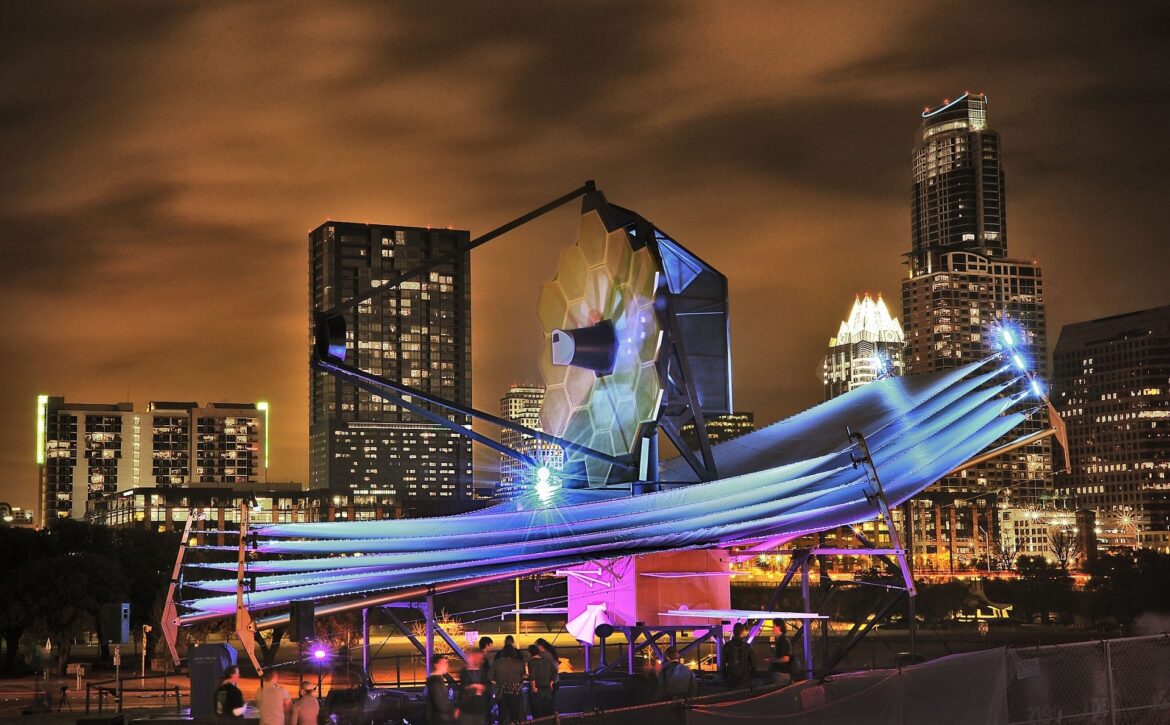Table of Contents
The Impact of AI on Job Automation & Employment
Artificial Intelligence (AI) has rapidly transformed various aspects of our lives, and one of the most significant areas it’s reshaping is the job market. In this article, we will explore the Impact of AI on Job Automation & Employment. We’ll delve into how AI is displacing jobs, the future of work with AI, and the implications for job prospects, as well as workforce transformation due to this technological revolution.
AI’s Influence on Job Automation
AI’s influence on job automation is undeniable. With advancements in machine learning and robotics, many routine and repetitive tasks that were once performed by humans are now being automated. This shift has raised concerns about job security and the potential displacement of human workers.
Take manufacturing, for example. AI-powered robots can work tirelessly and efficiently on assembly lines, reducing the need for human labor in these roles. Similarly, in the service industry, chatbots and virtual assistants are taking over customer support tasks, streamlining operations while reducing the need for human intervention.
Employment in the Age of AI
The age of AI has brought about significant changes in the employment landscape. While some jobs are disappearing due to automation, others are evolving to require new skill sets. For instance, as traditional data entry positions become automated, there is a growing demand for data analysts and machine learning engineers who can develop and maintain AI systems.
Artificial Intelligence and Job Displacement
One of the most immediate concerns regarding AI is the displacement of jobs. As AI systems become more capable, professions like truck driving and cashier positions may become obsolete. However, it’s essential to note that AI also creates new employment opportunities. Companies need experts to develop, maintain, and improve AI systems, which can lead to the creation of high-tech jobs.
Future of Work with AI

The future of work is closely intertwined with AI. While some fear massive job loss, others anticipate a more flexible and productive workforce. Remote work, for instance, has become increasingly feasible thanks to AI-powered communication tools and project management software. This shift may lead to a more balanced work-life arrangement for many.
Automation’s Effect on Employment
Automation’s effect on employment is multifaceted. On one hand, automation can lead to job displacement in certain sectors. On the other hand, it can enhance productivity, reduce costs, and create new roles in AI-related fields. The key is for individuals to adapt to these changes by acquiring relevant skills and staying updated with technological advancements.
Job Prospects with AI Advancements
Despite concerns about job displacement, AI advancements also present numerous job prospects. As AI becomes more integrated into various industries, there will be a growing demand for professionals who can harness its power. This includes roles in AI research and development, data science, and AI ethics.
Workforce Transformation Due to AI
Workforce transformation is inevitable due to AI. Companies that embrace AI technologies are likely to thrive, while those that resist may struggle to remain competitive. To stay relevant, employees should be open to learning new skills and adapting to the evolving job market.
AI-Driven Job Disruption
AI-driven job disruption is reshaping traditional career paths. Industries such as finance, healthcare, and transportation are experiencing significant changes. While this disruption may cause temporary challenges, it can also lead to more efficient and innovative business practices.
Robotics and Employment Impact
The impact of robotics on employment cannot be understated. Robots are increasingly being used in industries like agriculture and logistics, which traditionally relied on manual labor. While this can result in job displacement, it also opens up opportunities for individuals to specialize in robot maintenance and programming.
Job Security in the AI Era
Job security in the AI era depends on adaptability and continuous learning. Jobs that are less susceptible to automation often require complex problem-solving, creativity, and emotional intelligence, which are areas where humans still excel. It’s crucial for individuals to invest in developing these skills to enhance their job security.
AI’s Role in Workforce Changes
AI’s role in workforce changes is twofold. It eliminates certain roles while creating new ones. The key is for individuals to identify the skills that will be in demand in the AI-driven job market and proactively acquire them.
Automation and Employment Trends
Automation and employment trends are evolving rapidly. Industries like e-commerce are experiencing significant growth, leading to a surge in jobs related to online retail, logistics, and digital marketing. Staying informed about these trends is essential for career planning.
Career Implications of AI
The career implications of AI are profound. To thrive in this new era, individuals must be adaptable and willing to upskill. Employers value employees who can work alongside AI systems and leverage their capabilities to drive innovation and efficiency.
Employment Opportunities in AI
For those considering a career change or starting their education journey, there are abundant employment opportunities in AI-related fields. Roles such as machine learning engineer, AI ethicist, and data scientist are in high demand and offer promising career prospects.
Job Market and AI Technology
The job market is increasingly intertwined with AI technology. Job seekers who are proficient in AI-related skills will have a competitive edge. Employers are actively seeking talent who can harness AI to solve complex problems and drive business growth.
Labor Market in the AI Age
The labor market in the AI age is dynamic and evolving. It rewards individuals who continuously update their skills and stay attuned to industry trends. Lifelong learning is essential for long-term career success.
AI’s Impact on Job Creation
While AI may displace certain jobs, it also has the potential to create new ones. As AI technology advances, industries such as autonomous vehicles, renewable energy, and personalized healthcare are poised for growth, offering employment opportunities for those with the right skills.
Job Displacement by Automation
Job displacement by automation is a legitimate concern. However, history has shown that technological advancements often lead to the creation of new industries and job categories. Adapting to these changes and acquiring relevant skills is crucial for staying employed.
Employment Challenges with AI
Employment challenges with AI are real, but they are not insurmountable. Governments, educational institutions, and businesses can collaborate to provide training and reskilling programs that help individuals transition into AI-related roles.
Workforce Adaptation to AI
Workforce adaptation to AI is an ongoing process. It requires a shift in mindset and a commitment to lifelong learning. Embracing AI as a tool to enhance productivity and problem-solving can lead to successful adaptation.
Job Loss and Automation
Job loss due to automation is a reality that many individuals face. However, understanding which jobs are at higher risk of automation and proactively pursuing career paths less susceptible to AI disruption can mitigate this risk.
Employment Resilience in the AI Era
Employment resilience in the AI era is achievable through continuous learning and skill development. Those who can adapt and innovate in an AI-driven world will find themselves well-prepared for the job market’s evolving landscape.
Automation’s Workforce Consequences
Automation’s workforce consequences are complex, but they offer opportunities for growth and development. By staying informed about industry trends and embracing AI as a tool for advancement, individuals can navigate the changing employment landscape successfully.
Career Shifts in an AI-Driven World
In conclusion, the impact of AI on job automation and employment is undeniable. While it presents challenges such as job displacement, it also offers new opportunities and career prospects. To thrive in the age of AI, individuals must be adaptable, continuously acquire relevant skills, and embrace AI as a tool for innovation. The future of work is evolving, and those who can navigate this transformation will find themselves well-positioned for success in the AI-driven world.
FAQs
Q1: Are there any employment opportunities created by AI?
A1: Yes, AI creates new employment opportunities in fields such as machine learning, data science, and AI ethics, as well as roles related to the development and maintenance of AI systems.
Q2: How can individuals enhance their job security in the AI era?
A2: To enhance job security in the AI era, individuals should focus on developing skills that involve complex problem-solving, creativity, and emotional intelligence, as these are less susceptible to automation.
Q3: What should job seekers know about AI’s influence on job markets?
A3: Job seekers should be aware that AI is reshaping recruitment and hiring processes, with AI-powered algorithms being used for resume screening and candidate assessment.
Q4: How can individuals adapt to workforce changes due to AI?
A4: Individuals can adapt to workforce changes by committing to lifelong learning and embracing AI as a tool for productivity and problem-solving.
Q5: Is there a risk of job loss due to automation, and how can it be mitigated?
A5: There is a risk of job loss due to automation, but individuals can mitigate this risk by understanding which jobs are more susceptible to automation and pursuing career paths less likely to be disrupted by AI.
Q6: What are the employment challenges associated with AI?
A6: Employment challenges with AI include the potential displacement of certain jobs, but these challenges can be addressed through training and reskilling programs.
Q7: How can individuals stay informed about employment trends in the AI age?
A7: Staying informed about employment trends in the AI age requires keeping up with industry news and seeking out educational resources and programs that teach AI-related skills.
Q8: What are some examples of industries experiencing job disruption due to AI?
A8: Industries such as manufacturing, customer service, transportation, and finance are experiencing job disruption due to AI automation.
Q9: Are there any industries experiencing job growth because of AI?
A9: Yes, industries like autonomous vehicles, renewable energy, and personalized healthcare are experiencing job growth due to advancements in AI technology.
You May Like : AI Image Recognition in Medical Diagnosis

